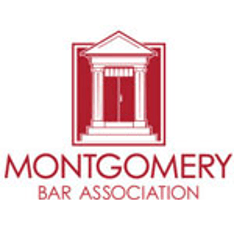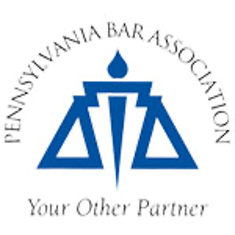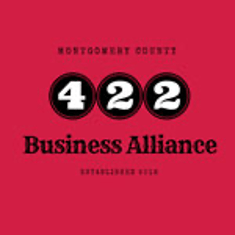Information You Need to Know About the Beneficial Ownership Information
Reporting Company Rules Effective January 1, 2024
Criminals often use anonymously owned United States companies to launder money, fund terrorism, evade taxes, and participate in other unlawful activities. To detect and counter these activities, Congress passed the Corporate Transparency Act (“CTA”).
The act sets forth reporting rules for all domestic and foreign companies. Every qualifying “Reporting Company” must relay Beneficial Owner Information (“BOI”), along with other pertinent data, to the Financial Crimes Enforcement Network (“FinCEN”). Download FinCEN’s Small Entity Compliance Guide through this link.
A Reporting Company’s failure to comply could lead to very extreme penalties.
This article provides a general overview of these definitions and reporting rules. It also outlines the deadlines, penalties, and exemptions.
What is a Reporting Company?
A Domestic Reporting Company is any entity that is required to formally file a document with a U.S. state, territory, or Native American Tribe to establish its existence (e.g. corporation, limited liability company [“LLC”]).
A Foreign Reporting Company is any non U.S. entity that has formally filed documents to do business with any U.S. state, territory, or Native American Tribe.
U.S. territories include American Samoa, Guam, Northern Mariana Islands, Puerto Rico, and the U.S. Virgin Islands.
Who Is a Beneficial Owner?
A Beneficial Owner is anyone who directly or indirectly:
- exerts substantial control over the Reporting Company (a senior officer or anyone who appoints or removes senior officers or influences the governing corporate body or determines important matters, exerts substantial control)
or
- owns a minimum of 25% of the Reporting Company (ownership includes equity, stock, voting rights, stock, capital or profit interests, options, and any other ownership means)
If an individual satisfies either of these definitions, they are a Beneficial Owner.
Individuals meeting a Beneficial Owner classification may be exempt if they are:
- serving as an intermediary, candidate, custodian, or on another person’s behalf
- a minor child
- acting exclusively as a Reporting Company’s employee
- simply a Reporting Company’s future heir
- just a Reporting Company’s creditor
Information a Reporting Company must Detail
A Reporting Company must provide detailed information to FinCEN about Beneficial Owners and the company.
Reporting Companies created or registered after January 1, 2024 are required to detail information about Company Applicants.
A Company Applicant is the individual who directly filed the creating or registering Reporting Company documentation, as well as the individual primarily responsible for controlling such filings. A Reporting Company can have several Company Applicants.
Companies or legal entities cannot be company applicants.
Information a Reporting Company Must Provide to FinCEN
A Reporting Company must disclose its:
- complete legal name, any trade name, and any “doing business as” name
- current address
- formation or registration jurisdiction
- IRS Taxpayer Identification Number (TIN)
- Employer Identification Number (EIN)
- For Foreign Companies: Foreign Tax ID Numbers and Territory Name
Beneficial Owners and Company Applicants (when applicable) must provide their:
- full legal name
- birth date
- complete current address (Company Applicant’s may use business addresses)
Beneficial Owners and Company Applicants (when applicable) must also supply images, designation numbers, and the issuing venues of one of the following, unexpired, identification documents:
- state driver’s license
- passport
- state, local government, or Native American Tribal identification document
- foreign passport (if none of the aforesaid exist)
FinCEN Reporting Method
Every Reporting Company created or registered to do business before January 1, 2024 will have until January 1, 2025 to file their initial report.
Every Reporting Company created or registered on or after January 1, 2024, will have 30 days to file their initial report (beginning from the state’s date of notice or public creation notice – whichever is earlier).***
***FinCEN Update November 29, 2023***
FinCEN Extends Deadline for Companies Created or Registered in 2024 to File Beneficial Ownership Information Reports
FinCEN is extending the deadline for certain reporting companies to file their initial BOI reports. Specifically, reporting companies created or registered in 2024 will have 90 calendar days from the date of receiving actual or public notice of their creation or registration becoming effective to file their initial reports. Reporting companies created January 1, 2025 or after will have 30 days to report.
Should a report contain any errors, a Reporting Company has 30 days from the date it discovered the error or had reason to know of the error to file a corrected report.
Should Beneficial Owners or company information change, a Reporting Company has 30 days from said change date to file an updated report.
Where applicable, a Reporting Company is not required to file an updated report about Company Applicant changes.
There is no BOI report filing fee.
FinCEN can begin accepting electronic company reports through a secure system beginning January 1, 2024. FinCen is presently setting up the system and will be available at that time. Its website contains reference materials and other BOI resources.
Potential Penalties for Not Complying with the Reporting Company Rules
A Reporting Company’s failure to provide proper BOI to FinCEN could result in civil penalties of $500 for each day the violation goes on, as well as $10,000 in criminal penalties and/or two years of prison.
What Businesses are Exempt?
The CTA excluded certain company classes from reporting. Such classes include entities where BOI is currently a matter of public record; the government currently oversees the entity; and, where the Treasury Secretary (along with the Attorney General and Homeland Security Secretary’s concurrence) justified the exemptions.
A few examples of exempted businesses include:
- brokers, dealers, and securities issuers
- banks, credit unions, and loan holding companies
- insurance companies
- public accounting firm
- public utilities
- certain tax-exempt corporations
- businesses that employ more than 20 full time workers
- certain inactive corporations
Preparations You Can Make Now
It is vitally important for all entity proprietors to know about the upcoming CTA’s Reporting Company requirements and whether they are Beneficial Owners and potential Company Applicants.
To streamline the process and protect yourself and your business from penalties, consult with a professional advisor.
Watch this space for future blogs about this and other corporate law updates and amendments.
The Fleischmann Law Firm, P.C.
The Fleischmann Law Firm specializes in business law and can guide your corporation through these and other time-sensitive reporting regulations.
Its attorneys partner with you to minimize risk and liability, offer objective and fair assessment, and weigh all circumstances and options. They offer solid recommendations and provide superior representation.
Attorney Craig J. Fleischmann and staff offer over three decades of experience, integrity, cost-effectiveness, value, and integrity. Contact the Fleischmann Law Firm today.
The Fleischmann Law Firm, P.C. serves clients throughout Pennsylvania including Skippack and Montgomery County. If you need an attorney for your business or estate planning/administration needs, contact The Fleischmann Law Firm, P.C. today.
Request consultation
We will get back to you as soon as possible.
Please try again later.
Request consultation
© 2021 The Fleischmann Law Firm, P.C. All Rights Reserved.






